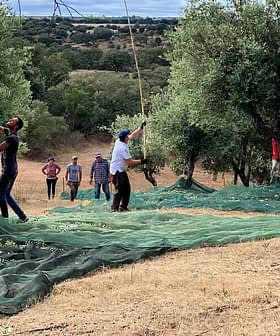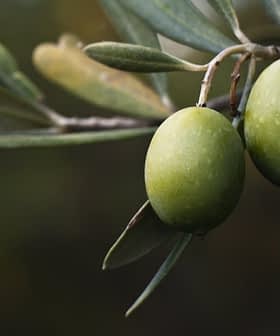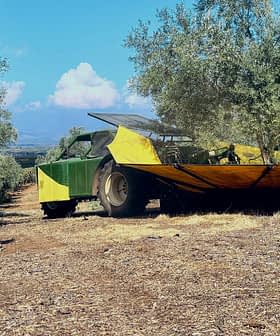Political Turmoil Complicates Efforts to Revive Syrian Exports

Syria’s new government is working to reopen ministries and shops to revive the economy following the ousting of former President Assad by rebels. The government is also considering lifting the export ban on olive oil to boost the economy, despite concerns about quality and production challenges.
Officials in Syria’s new de facto government have instructed ministries and shops to reopen less than a week since the dramatic ouster of former Syrian President Basah al-Assad in an effort to kickstart the country’s stalled economy.
Assad fled to Russia after a coalition of rebels led by Hayat Tahrir al-Sham toppled his government and captured the capital, Damascus, potentially bringing the 13-year civil war in which more than half a million people were killed and 13 million displaced to an unexpected end.
Acting Finance Minister Riad Abd El Raoud told the Financial Times that the new government would undertake “a re-examination of all current monetary and economic policies.”
See Also:2024 Harvest UpdateAmong these policies is the Ministry of Economy and Foreign Trade’s October decision to greenlight the export of 10,000 metric tons of olive oil after prohibiting exports in September 2023. Export licenses were restricted to government-approved companies.
It remains to be seen how the next government will change this arrangement or if it will lift the export ban completely. However, its leaders have pledged to enact free-market reforms and crack down on ubiquitous corruption across the state apparatus.
The decision came after the agriculture ministry said it anticipated a surplus of olive oil, with production expected to reach 55,000 tons in areas controlled by the Assad regime; olive oil consumption in Syria is about 48,000 tons annually.
About 40 percent of the country’s olive groves are in northwestern Syria, parts occupied by Turkey or governed by non-state actors for nearly a decade.
According to the Ministry of Agriculture, Syrian olive farmers expect to harvest 11 percent more olives than in 2023/24. The ministry also estimated that table olive production will reach 86,000 tons.
However, some farmers in the country’s north told local media that they were expecting a lower harvest than initially thought due to the lack of autumn rain and increased pest infestations.
There have also been concerns about quality. One agronomist told local media that the economic crisis fomented by the civil war had prevented mills from operating daily and resulted in farmers leaving olives multiple days in burlap sacks waiting to be milled.
The agronomist added that a water shortage after years of drought means many of the olives were not washed, leaving pesticide residue from the most recent applications.
The country’s economic crisis has also affected local consumption, with per capita olive oil consumption dropping to about three kilograms annually, down from six kilograms.
Officials in the previous regime had hoped that olive oil exports could bolster the economy. Olive groves cover about 423,000 hectares and comprise 61 million fruit-bearing trees. The industry was viewed as strategic, benefitting 20 percent of the population.
The new government is now working to lift Western sanctions, allowing exports to European countries, including Italy, where a disappointing harvest means bottlers will be looking abroad to source products.
Daniel Dawson contributed to this report.







